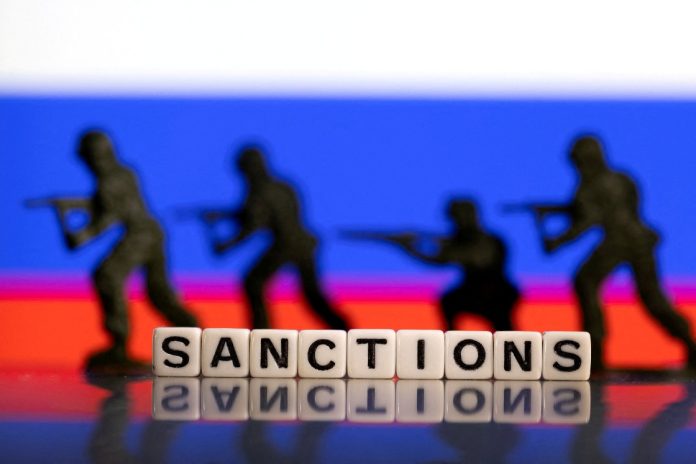11th set of sanctions against Russia has been approved by the governments of the European Union, giving the group the ability to punish individuals, organizations, and third parties who violate the current regulations.
The new measures were approved at a meeting of EU ambassadors in Brussels, according to a statement made on Wednesday by Sweden, which is currently holding the rotating presidency of the bloc.
An expanded list of goods and technologies that might benefit Russia’s military or security sector are prohibited from transiting through Russia under the agreement.
read more: EU to respond with sanctions if China supply weapons to Russia
According to this new mechanism, third countries, such as those in Central Asia, could be penalized by the EU if they disregard Western sanctions or can’t explain a sudden increase in trade in goods that are prohibited.
The measures’ specifics will be made public later this week after the sanctions are formally adopted by written procedure.
Ursula von der Leyen, president of the European Commission, applauded the choice and claimed that the package would deal Russia one more blow by tightening export controls and targeting Kremlin-supporting entities. ”.
She continued, “Our anti-circumvention tool will stop Russia from obtaining goods that are subject to sanctions.”.
According to several diplomats who spoke to the media under the condition of anonymity because the final document has not yet been made public, the new sanctions list includes three China-based companies and two Hong Kong-based firms.
The responsibility that comes with being a permanent member of the UN is held by China. Additionally, China has influence over Russia, so we anticipate China to use this influence to persuade Russia to participate in negotiations, Leyen said in an interview with the CNBC channel.
Following the names’ leak in early May and high-level discussions between the European Commission and Beijing, European diplomats claimed China promised to exert pressure on these companies to cease their operations.
Officials added that three of the five remaining companies, which are little-known and registered in Hong Kong, are suspected to be owned by Russians. Five companies were reportedly removed from the list.
The suspension of five Russian state-controlled media outlets’ EU broadcasting licenses has been extended by the new EU package. In addition, 71 additional people and 33 additional entities are now barred from entering the EU and have their EU assets frozen.
The deal, which was first proposed more than a month ago, was delayed because Hungary and Greece objected to the designation of their own domestic companies.
Five Greek shipping companies were listed by Ukraine as “international sponsors of war” because they conducted business with Russia or otherwise supported Moscow’s military campaign.
After obtaining Athens’ support for the package by removing the five Greek shipping companies from its list, Ukraine announced a new set of sanctions a few hours later.
The package prohibits ships involved in ship-to-ship transfers from entering EU ports if the cargo is thought to be of Russian origin.
Despite the fact that Ukraine’s largest commercial bank, OTP, remained on the list, Hungary supported the new sanctions.
In the meantime, a few nations, including Germany, were hesitant to name other nations out of concern that doing so might damage their diplomatic ties or even encourage those nations to move closer to China or Russia.
Since the start of the conflict in Ukraine on February 24, 2022, the EU has sanctioned Russia ten times, affecting markets, banks, companies, and sensitive energy sectors as well as more than 1,000 officials who were subject to asset freezes and travel bans.
The 27-nation bloc has already allocated 30 billion euros from its budget to help Ukraine, and this week the European Union announced it would provide 50 billion euros ($54.58 billion) in aid over the following four years to help Ukraine fight Russia.
Despite repeated warnings from the Kremlin that such actions would only prolong the war, the United States and its European allies have unleashed an array of unprecedented sanctions against Russia since the start of the conflict and poured an enormous amount of cutting-edge weapons into Ukraine to aid its military in repelling Russian troops.













